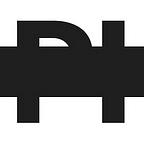Living under a microscope
The spread of drones in Latin America
Privacy International is celebrating Data Privacy Week, where we’ll be talking about privacy and issues related to control, data protection, surveillance and identity. Join the conversation on Twitter using #dataprivacyweek.
This post was written by Sebastian Becker (@sebabecks) of Datos Protegidos, a member of the Privacy International Network who recently published a report on the use of drones in Latin America.
Can you imagine a city whose residents are watched by thousands of drones? How will people change their behaviour with surveillance drones monitoring streets, squares, yards or balconies?
The 21st century will be an era of great technological developments, but also one in which it will be critical to distinguish between which technologies will offer us a better life and which ones will affect our rights, lifestyles and even our integrity. Nowadays, drones are the cutting-edge technology to solve several problems in our complex societies: they can be used to monitor construction sites, farms, pipelines or mines. In addition, politicians are “innovating” by using drones to monitor cross-border activity and urban violence. According to Goldman Sachs, the civil and commercial drone industry will reach 30 billion dollars by 2020.
Drones give authorities a new and great power against people, because of their extraordinary zooming ability and unique movement. Drones are capable of recording with a 360º panoramic view and, at the same time, can move in specific places solely depending on the discretion of operator. Moreover, drones may not be perceived by those who are being monitored, giving enforcement authorities -in Foucault terms- a panoptical power.
In this context, several politicians in Latin America are using drones as the new device to stop criminality and urban violence. For example in Brazil, the government spent $USD 12 million in surveillance drones for the World Cup in 2014. In Argentina, the mayor of Buenos Aires, Patricia Bulrrich, announced the imminent implementation of drones; however, this has not materialised. Recently in Chile, the Supreme Court held that the Las Condes district could conduct surveillance via drones, despite concerns raised by Datos Protegidos and Derechos Digitales.
Thus, through drones, authorities in Latin America are increasing their power to monitor people on behalf of public safety without considering the consequences of these policies. Authorities are not recognising our right to privacy in public spaces, and that no one can be forced to be recorded without their consent in a square, bar or street.
Furthermore, it can be affirmed that drones as surveillance devices violate not only the right to privacy but also other human rights. This panoptical power creates a chilling effect on people, inhibiting them from expressing dissent or controversial opinions. On behalf of “public safety”, drones will monitor not only criminality but also people who are protesting, praying, entering strip clubs, etc.
It is possible to imagine a future where thousands of drones monitor our daily lives. Indeed, drones are already being used as a surveillance mechanism in several countries in Latin America, not only violating the right to privacy but also obstructing other rights such as freedom of speech or freedom of assembly. Drones are a perfect tool for authoritarian governments or weak democracies to monitor political dissenters and marginalised communities. We should remember that cutting-edge technologies may improve our lives but can also be used against us.
